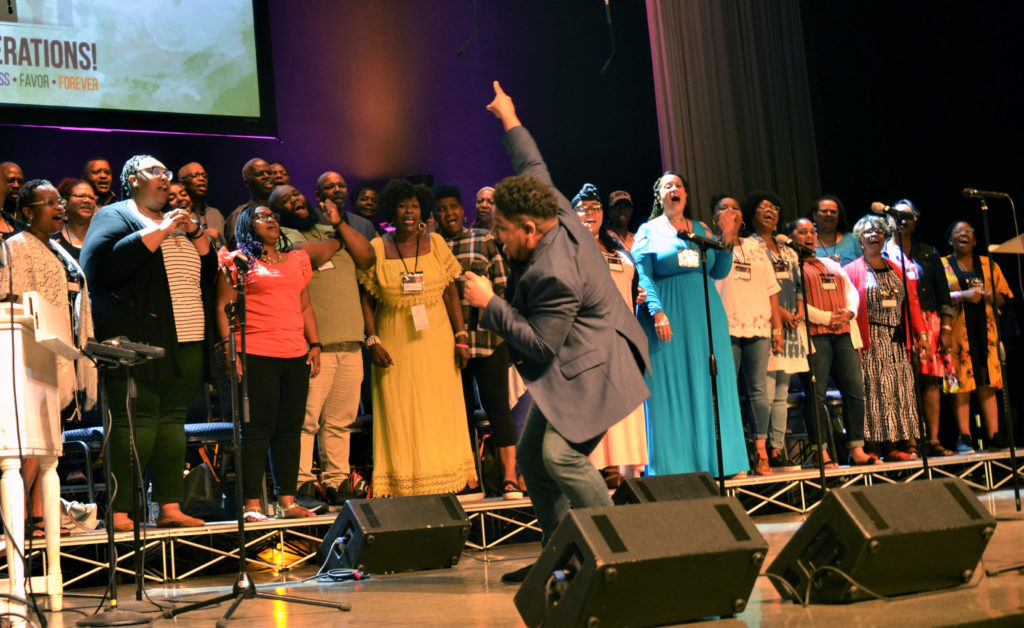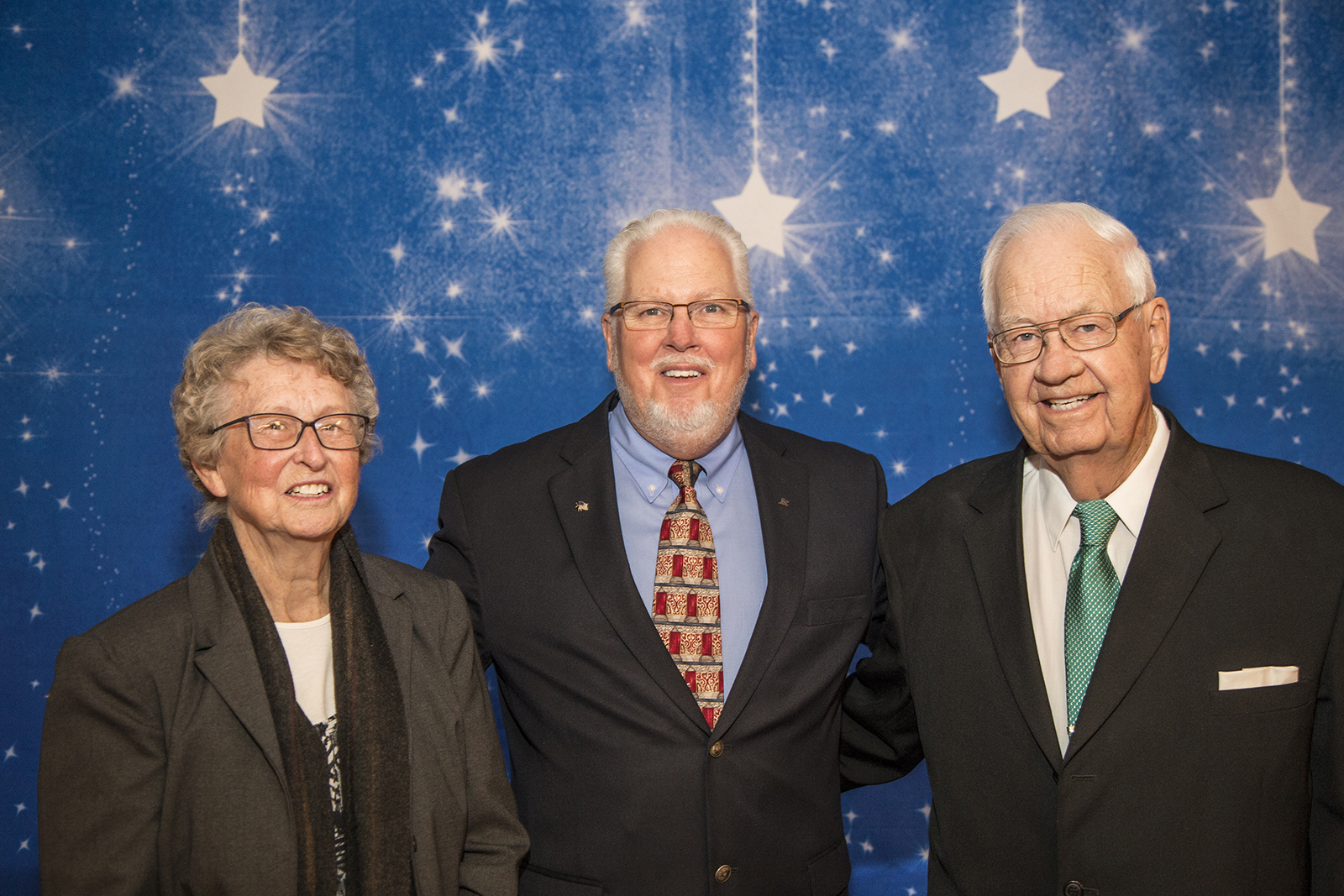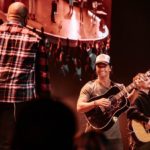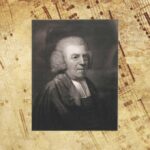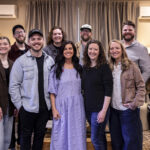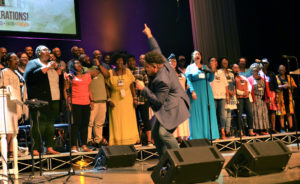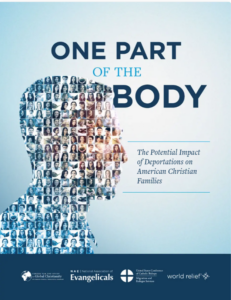
WAKE FOREST, N.C. (BP) – “Pass Me Not O Gentle Savior” and “There is a Fountain Filled With Blood” are among hymns and spiritual songs that have anchored the faith of Michelle “Missie” Branch, a seminary dean, public speaker, wife and mother.
“I heard that sung over and over and over again, and I can even still hear some of the pain in the voices of some of the people who sang it, and some of the hope in the voices of the people who sang it,” Branch told Baptist Press at the close of Black History Month, recalling the worship days of her childhood in Philadelphia. “And I think that that’s what made those words more real to me as I witnessed the strength and the fear as those words were being sung, and then I watched people’s lives.
“None of it looked like it was purely academic or just something to do, a rote thing that we did on Sundays,” said Branch, assistant dean of students – women and director of graduate life at Southeastern Baptist Theological Seminary (SEBTS). “I got to be in the midst of people who were being transformed by those truths and were depending on them to get through.”
Roy Cotton, a retired ethnomusicologist and senior pastor emeritus in Dallas, said God has used songs as a cultural vehicle of liberation for African Americans, including songs written by whites such as Fannie Crosby and Isaac Watts, and songs written by Blacks as far back as the forced Middle Passage of enslaved Africans.
God used Negro spirituals, Cotton said, including “Swing Low, Sweet Chariot,” by Choctaw freedman Wallace Willis; “Sometimes I Feel Like a Motherless Child,” by Harry Burleigh, and “Didn’t My Lord Deliver Daniel,” whose author is unknown.
“Isaac Watts, who was one of the fathers of modern hymnody, wrote many of the songs in the Baptist hymnals like, ‘When I Survey the Wondrous Cross,’ but he also wrote songs that Black people just loved,” Cotton said. “’Father I Stretch My Hands to Thee.’ You don’t hear that (typically) in a white church. I was in a Black/African American church last Sunday. Before the message, the pastor called for, ‘Father I Stretch My Hands to Thee;’ ‘No Other Help I Know;’ ‘If Thou Withdraw Thyself from Me;’ ‘Oh Whither Shall I Go?’”
Such songs are particularly real to African Americans, Cotton said, and recall struggles born in the Middle Passage, endured during the persecution of slavery, and triumphantly carried through the Jim Crow era and lingering social ills.
Cotton recalls “They Sang Through the Crisis,” a little-known book written by the late John Malcus Ellison, one of Cotton’s early mentors who was the first African American president of the historically Black Virginia Union University.
“His thesis for that book was that … these songs helped us get through,” Cotton said. “And that’s what he said, ‘They Sang Through the Crisis.’ … We learned our theology through these songs. ‘Ain’t Gonna Lay My ‘Ligion Down.’ They didn’t have good English, but they had sound theology.
“(These songs) helped preserve for us the richness of our heritage because we knew we had to have Someone stronger than ourselves. The fact is, our people understood that there was a God who reigns above and that He was going to see all of the things and know the hardships that they went through. That’s why slave owners, many times, would even tear whole books out of the Bible, just in case they learned to read,” Cotton said, referencing Exodus in particular.
Branch and her husband William, SEBTS assistant professor of preaching and Bible, believe it’s important that their children know Negro spirituals and other hymns that have anchored the faith of Blacks, she said, and teach their children songs from a copy of The Baptist Hymnal used in churches she attended in her childhood.
“I want my children to see that there is, first of all, there’s just a level of strength in relying on the Lord and not relying on necessarily what’s going on in my life right now. The Lord clearly has a plan and a path,” she said. “If this God was faithful to the people who wrote the Negro spirituals, and this God’s continued to be faithful to the people who were writing the hymns, and then all the way up to where we are now, then clearly His track record has proven that our circumstances do not dictate His faithfulness, His goodness, the truth of His Word.”
William Branch, who also serves as undergraduate chapel coordinator for The College at Southeastern, also writes and performs theologically based raps. The Branch children – Trinity, Eden, Jeremiah and Sinai – have learned theology through his raps, she said.
“One of the things that has been really sweet is my husband is a theologian first,” Branch said, referencing a college course she took with her daughter Trinity. “As the professor was talking through all the theological doctrines we were going to talk through, my daughter said, ‘I’ve learned something about every one of these things through Dad’s music.’”
Theologically based songs can teach her children, Branch said, the importance of living this life well, but also the supremacy of eternity.
Cotton, a former music minister, music teacher and church starter who served on state Southern Baptist conventions in Virginia and Texas, believes longstanding and new songs of the faith hold rich lessons that need to be preserved. Cotton is senior pastor emeritus of CenterPointe Church in De Soto, Texas, which he founded, and serves in a consulting capacity as director of the Ambassador Program for the Baptist General Convention of Texas, where he previously served fulltime as director of African American ministries. He has been inducted into the Dallas Metroplex Musicians Association Hall of Fame.
“Deuteronomy 6 says that we must write it, write it down. Teach it to our children,” Cotton said. “We’ve got to let our generations to come know that it was nobody but the Lord. It was God – it was God’s grace – Who brought us to where we are today.
“I think these songs teach us who we are and what we’ve been through and about the God Who has brought us through. We’ve come this far by faith, leaning on the Lord.”
